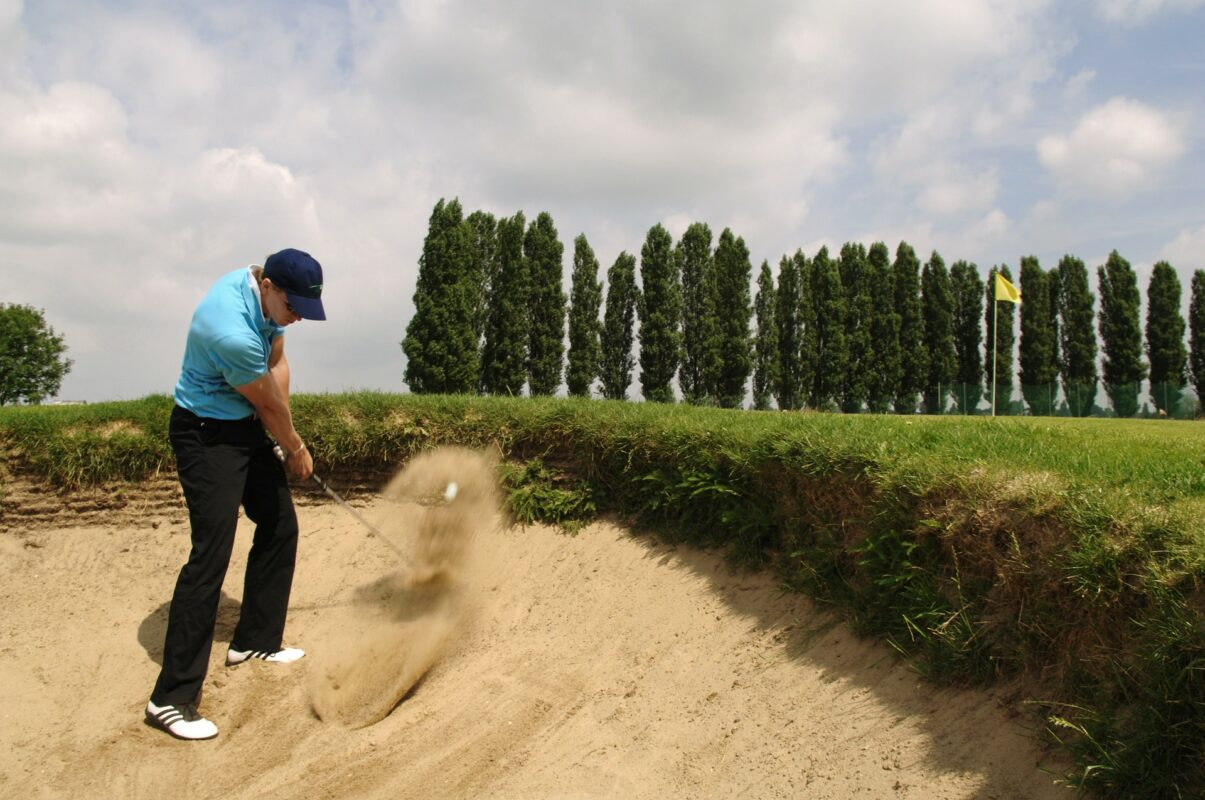Golf Strategy For Beginners: TOP Tips For Beginner Golfers
Understanding Golf Strategy
A strategy involves a series of well-thought-out actions aimed at achieving a specific goal. In golf, having a strategy is crucial, even for beginners. While a beginner’s strategy differs from that of a professional, it is essential for improving your game and increasing your chances of success on the course.
Jack Nicklaus: A Model of Strategic Golf
Jack Nicklaus, widely regarded as the greatest golfer of all time, exemplified the importance of a strict golf strategy. With 18 major titles and 117 professional victories, his disciplined approach to the game played a key role in his success. Nicklaus’s commitment to his strategy was unwavering, and his legacy offers valuable lessons for golfers at all levels.
He famously stated: “It takes hundreds of good shots to gain confidence, but only one bad one to lose it.”
The Importance of a Golf Strategy for Beginners
A solid golf strategy starts with mastering the fundamentals. As a beginner, it’s crucial to focus on the basics before progressing to more advanced techniques. Building a strong foundation through practice helps you develop essential skills and habits necessary for consistent improvement.
Components of a Golf Strategy
A golf strategy is essentially a routine—a plan for how to approach each aspect of the game with proper tactics and decisions. Here are key elements of a golf strategy:
- Club Selection: Choose the appropriate club for each shot. Consulting golf tips can aid in making the right choice.
- Positioning: Pay attention to your positioning on the golf course for optimal results. Stand behind the ball to identify the stroke line.
- Stance: A correct stance is essential. Align your feet and position yourself correctly in front of the ball.
- Grip: Hold the club properly.
- Ball Placement: Make sure to practice your golf ball placement for better accuracy and control. Position the ball correctly in your stance.
- Swing Mechanics: Focus on the steps of your swing, from the backswing to the follow-through.
Establishing and repeating these steps consistently is vital for achieving reliable performance. Including these golf tips can further strengthen your consistency across different areas of the game.
Developing Strategic Habits
For beginners, adopting golf routines can be challenging. It’s important to overcome the urge to rush through shots and instead take time to assess each situation. For example, timing your routine before each shot helps you stay focused and consistent.
Arriving early at the golf club allows you to practice on the driving range and putting green, establishing a routine that prepares you for the round. As Jack Nicklaus advised, “Don’t let the outcome influence your shot choice.” Stick to your routine regardless of the result, as patience and consistency are key to improvement.
Driving Tips for Beginners
The driver is one of the most crucial clubs in your bag, used frequently throughout a round. Here’s how to approach your driver shot:
- Tee Placement: Proper placement on the golf course is important for optimizing your play. Position the ball on the tee at the right height.
- Pre-shot Routine: Follow a consistent routine before every shot.
- Stance: Adopt a wide stance with the golf ball correctly placed in your stance.
- Swing Visualization: Imagine the ball’s trajectory and start your swing smoothly.
Putting Tips for Beginners
The putter is the most used club in a round, and developing a putting strategy is essential. Regularly practicing on the golf course can enhance your putting skills. Key aspects include:
- Reading the Green: Read the green and improve your putting accuracy. Analyze the putt break from different angles.
- Green Speed: Consider the speed of the green and other factors like wind and moisture.
- Consistent Routine: Develop a routine for putting that includes assessing the line and strength of each putt.
Conclusion
Starting with training and repetition is the best way to build a solid foundation in golf. Avoid overwhelming yourself with advice from too many sources; instead, rely on consistent guidance from a trusted instructor. While it may not lead to major tournament victories like those of Jack Nicklaus, a well-developed golf strategy will certainly enhance your performance in your club’s championship rounds.
Frequently Asked Questions
Q: What are some essential golf tips for beginners to start playing?
A: First and foremost, practice your golf swing from the ground up. Start with smaller swings, and gradually work your way to a full swing. It’s also important to learn proper golf etiquette and make sure you’re familiar with the basic rules. Lastly, invest in a good set of golf clubs and golf shoes.
Q: How should I choose my first set of golf clubs?
A: When you’re just starting, you don’t need the most expensive set of clubs. Focus on getting a good mix of clubs like a driver, fairway woods, irons, a pitching wedge, and a sand wedge. Make sure to get fitted for your clubs to ensure they match your swing.
Q: What’s the best way to improve your golf swing?
A: Consistent golf practice is key. Spend time on the driving range focusing on your technique. Work on your practice swing to build muscle memory. Pay attention to your grip, stance, and alignment to ensure a solid contact with the ball.
Q: How can I improve my short game around the green?
A: Practice your chipping and putting regularly. Use your sand wedge or pitching wedge to practice different types of golf shots around the green. Focus on getting the ball close to the hole to minimize strokes.
Q: What should I expect from my first round of golf?
A: Your first round of golf can be nerve-wracking, but don’t stress. Focus on enjoying the experience and learning from each shot. Remember that every golfer has bad shots, and it’s all part of the game. Pay attention to golf etiquette, and have fun!
Q: How important are golf lessons for beginners?
A: Golf lessons are extremely beneficial, especially when you’re new to golf. A professional instructor can help you get the basics right, which will set a strong foundation for your golf journey. They can provide personalized tips and correct any bad habits before they become ingrained.
Q: How do I find local golf courses to practice and play on?
A: Start by searching online for “local golf courses” near your area. Many courses offer beginner-friendly environments and even have driving ranges where you can practice. Joining a local golf club can also give you access to facilities and fellow golfers who can offer support.
Q: What’s the purpose of a practice swing?
A: A practice swing helps you get a feel for the motion and find your rhythm before you hit the ball. It can improve your accuracy and confidence, leading to better shots during your actual swing.
Q: What are some common terms and etiquette I should know when I start playing?
A: Familiarize yourself with terms like “fairway,” “bunker,” “divot,” “handicap,” and “tee time.” Understanding proper golf etiquette, such as being quiet while others are taking their shots, repairing any divots you make, and not walking in another player’s putting line, is also crucial.
Q: How can I practice golf without going to the course?
A: You can practice your swing at home or in a backyard with golf training aids. Indoor putting greens are great for short game practice. Virtual golf simulators are also a fantastic option for those who are obsessed with golf and want to hit without leaving the house. A driving range session is excellent for focusing on different aspects of your game.





























